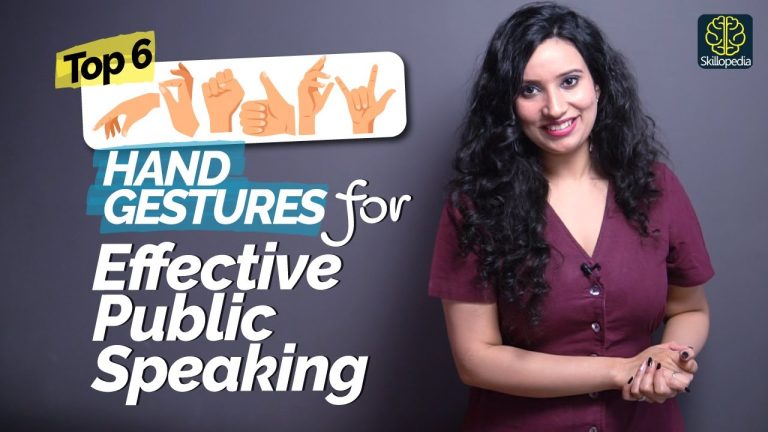How to Stop Stuttering When Speaking?
To stop stuttering when public speaking, practice breathing exercises and utilize relaxation techniques. Stuttering can be reduced by controlling your breath and staying calm during presentations.
By implementing these strategies, you can improve your fluency and confidence when addressing an audience. Public speaking can be a nerve-wracking experience for many individuals, and stuttering can further amplify this anxiety. However, with the right techniques and practice, it is possible to overcome stuttering and deliver a speech with clarity and confidence.
Deep breathing exercises, such as diaphragmatic breathing, can help you relax and control your speech rate. Additionally, incorporating relaxation techniques, such as progressive muscle relaxation or visualization, can alleviate tension and promote smoother speech. By implementing these strategies into your public speaking routine and seeking support through speech therapy or self-help resources, you can effectively manage stuttering and enhance your communication skills.
Understanding The Causes And Impact Of Stuttering
Stuttering can greatly impact public speaking, causing anxiety and hindering effective communication. Understanding the underlying causes of stuttering is essential in finding techniques and strategies to overcome it and speak confidently in front of others.
Stuttering: Definition And Common Misconceptions
Stuttering is a speech disorder that affects the fluency of speech. Contrary to popular belief, it is not caused by nervousness or lack of intelligence. Rather, it is a complex condition with a variety of contributing factors. To help you understand stuttering better, let’s delve into the definition of stuttering and debunk some common misconceptions:
- Stuttering Defined: Stuttering is characterized by disruptions in the normal flow of speech, such as repetitions, prolongations, and blocks. These interruptions often manifest as repetitions of sounds, syllables, or words, making it difficult for individuals to express themselves fluently.
- Misconception: Nervousness Causes Stuttering: While it is true that anxiety can worsen stuttering, it is not the underlying cause. Stuttering typically emerges in childhood, even before social pressures can play a role. It is believed to have a genetic component and is associated with differences in brain structure and function.
- Misconception: Stuttering Reflects Intelligence: Stuttering does not reflect an individual’s intelligence or intellectual capabilities. People who stutter are just as intelligent and capable as those who do not stutter. It is important to separate fluency of speech from actual intelligence.
Psychological Factors Contributing To Stuttering
Stuttering is not solely a physical issue; it can also be influenced by psychological factors. These factors interact with the underlying biological predisposition and can exacerbate stuttering in certain situations. Let’s explore some of these psychological factors:
- Anxiety and Stress: Anxiety and stress can intensify stuttering. When individuals feel pressured to speak fluently, their anxiety levels may rise, leading to increased stuttering. Addressing anxiety and stress through therapy and relaxation techniques can often improve fluency.
- Self-esteem and Confidence: Stuttering can have a significant impact on self-esteem and confidence levels. The fear of being judged or ridiculed can lead to avoidance of speaking situations, hindering personal and professional growth. Building self-esteem and improving confidence is crucial in managing stuttering effectively.
Emotional And Social Impact Of Stuttering
Stuttering not only affects speech fluency but also has emotional and social repercussions. Understanding the emotional impact can help create empathy and support for individuals who stutter. Here are some key points to consider:
- Emotional Distress: Stuttering can cause emotional distress, leading to feelings of frustration, embarrassment, and shame. It is essential to provide a safe and supportive environment where individuals feel accepted and understood.
- Social Isolation: Stuttering often leads to social isolation as individuals may avoid certain social situations to minimize stuttering. This can impact relationships, social interactions, and overall quality of life. Encouraging inclusivity and fostering understanding in social settings is vital.
- Communication Skills: Stuttering can affect communication skills, making it challenging for individuals to convey their thoughts and feelings effectively. Speech therapy and communication strategies can help develop effective communication skills, enhancing overall confidence and social interactions.
Remember, with understanding, support, and effective interventions, individuals who stutter can overcome challenges and improve their speech fluency. By debunking misconceptions, addressing psychological factors, and addressing the emotional and social impact of stuttering, we can create a more inclusive and empathetic society.
Techniques To Reduce Stuttering During Public Speaking
Discover effective techniques to overcome stuttering and improve your public speaking skills. From practicing deep breathing exercises to using visualization techniques, these strategies can help you become more confident and fluent when addressing an audience. Master the art of speaking without stuttering and captivate your listeners effortlessly.
Stuttering can be a challenge when it comes to public speaking, but there are techniques that can help improve fluency and reduce the incidence of stuttering. In this section, we will explore different techniques and strategies that can be used to enhance communication and minimize stuttering during public speaking.
Breathing Exercises To Improve Fluency:
- Diaphragmatic Breathing: By focusing on deep breathing from the diaphragm, you can relax your body and reduce tension, which often contributes to stuttering. Practice breathing deeply and exhaling slowly to improve fluency.
- Breath Control: Learn to regulate your breath while speaking. Take short pauses and inhale gently during the breaks to regain composure and maintain a steady flow of speech.
- Smooth Phrasing: Break your speech into smaller, manageable phrases and practice saying them smoothly. Remember to focus on your breath and maintain a steady rhythm as you speak.
Speech Therapy Techniques For Stuttering:
- Slow, Controlled Speech: Speak at a deliberate, slower pace to give yourself ample time to form words and sentences without rushing. This can help you maintain control over your speech and reduce instances of stuttering.
- Prolonged Speech: Lengthen your syllables or words intentionally, creating a slower and more intentional speech pattern. This technique can help improve fluency and reduce the occurrence of stutters.
- Easy Onset: Start speaking with a gentle and relaxed initiation of sound rather than forcing the words out. This technique can reduce tension and allow for smoother speech.
Using Visual Aids And Props To Enhance Communication:
- Power of Visualization: Imagine yourself speaking confidently and fluently. Visualizing success can help reduce anxiety and improve speech flow.
- Visual Supports: Utilize visuals aids such as slides, props, or cue cards to assist in delivering your speech. These aids can help you stay on track and reduce stress, giving you more confidence in your ability to speak fluently.
- Structured Speech: Plan and organize your speech in a way that allows for clear transitions and logical flow. This structured approach can help reduce the likelihood of stuttering while providing a framework to guide your speaking.
By incorporating these techniques into your public speaking practice, you can improve fluency and reduce stuttering. Experiment with different strategies to find what works best for you, and remember that practice and persistence are key in overcoming stuttering challenges.
Practical Tips For Successful Public Speaking With Stutter
Discover effective strategies to overcome stuttering when delivering public speeches. Learn practical tips to improve your confidence and fluency, ensuring a successful and impactful presentation.
Public speaking can be daunting, especially for those who stutter. However, with the right strategies and mindset, it is possible to deliver powerful and confident speeches. In this section, we will explore practical tips that can help individuals who stutter overcome their challenges and excel in public speaking.
Preparing And Rehearsing Speeches Effectively
- Start by selecting a topic that you are passionate about and feel comfortable discussing.
- Break down your speech into smaller sections or bullet points to make it more manageable.
- Practice your speech multiple times, focusing on fluency and clarity.
- Record yourself during rehearsals and analyze areas where you tend to stutter. Seek feedback from a trusted friend or family member.
- Utilize relaxation techniques such as deep breathing exercises to alleviate anxiety before delivering your speech.
- Familiarize yourself with the speaking environment, including the stage layout, microphone placement, and lighting. This will help you feel more at ease on the day of your presentation.
Managing Anxiety And Building Confidence
- Understand that it is natural to feel nervous before public speaking, especially if you have a tendency to stutter. Acknowledge these feelings and remind yourself that you are capable of delivering a successful speech.
- Prioritize self-care leading up to your presentation. Get enough rest, eat well, and engage in activities that help you relax and unwind.
- Visualize yourself delivering a flawless speech, overcoming any challenges that may arise. Positive visualization can boost confidence and reduce anxiety.
- Join a local speech support group or seek professional help from a speech therapist who specializes in stuttering. These resources can provide valuable guidance and support in managing anxiety and building confidence.
Maintaining Control And Rapport With The Audience
- Establish a connection with your audience from the start by maintaining eye contact and using appropriate gestures. Engaging non-verbal communication can help divert attention from potential moments of stuttering.
- Embrace pauses in your speech. Allow yourself a moment to breathe and gather your thoughts. Pauses can add emphasis and convey confidence.
- If you encounter a stutter during your speech, remain calm and continue speaking. Avoid apologizing or drawing attention to the stutter, as this can make the situation more uncomfortable for both you and the audience.
- Use humor strategically to lighten the mood and create rapport with your listeners. Adding a touch of wit can create a positive atmosphere and relieve tension.
Remember, public speaking is a skill that can be honed with practice and perseverance. By implementing these practical tips, individuals who stutter can navigate their challenges and deliver impactful speeches with confidence. Embrace your uniqueness and let your voice be heard!

Credit: www.medicalnewstoday.com
Frequently Asked Questions On How To Stop Stuttering When Public Speaking?
How Can I Stop Stuttering When Public Speaking?
Practice deep breathing exercises, speak slower, and focus on one thought at a time to improve fluency. Seek professional help, such as speech therapy or public speaking courses, to address any underlying issues causing stuttering.
What Are Some Tips For Overcoming Stuttering During Presentations?
Prepare and practice your speech beforehand, use positive self-talk to boost confidence, and visualize successful communication. Start with small speaking engagements to build confidence gradually. Use pauses and gestures to improve fluency and engage with the audience.
Are There Any Speech Techniques To Reduce Stuttering?
Speech techniques like prolongation, where you elongate sounds, and easy onset, where you start words gently, can help reduce stuttering. Using rhythmic speech or speaking with a slight sing-song melody can also improve fluency. Experiment with different techniques to find what works best for you.
Can Anxiety And Stress Trigger Stuttering During Public Speaking?
Yes, anxiety and stress can trigger or worsen stuttering during public speaking. Relaxation techniques like deep breathing, meditation, and visualizing success can help manage these triggers. Taking time to calm your mind before speaking can significantly reduce stuttering episodes.
Conclusion
To overcome stuttering when public speaking, it is crucial to understand that it is a common challenge that many people face. By implementing the right strategies and techniques, one can effectively reduce or even eliminate stuttering. First and foremost, practicing and preparing beforehand can boost confidence and reduce anxiety levels.
Additionally, slow and deliberate speech, coupled with taking deep breaths, can help regulate speaking patterns and reduce stuttering. Being aware of body language and maintaining eye contact can also contribute to smoother speech delivery. Seeking professional help through speech therapy or joining support groups can provide valuable guidance and support.
Ultimately, it’s important to remember that stuttering does not define one’s worth or abilities. By implementing these strategies and developing self-acceptance, individuals can confidently navigate public speaking situations and communicate effectively.




